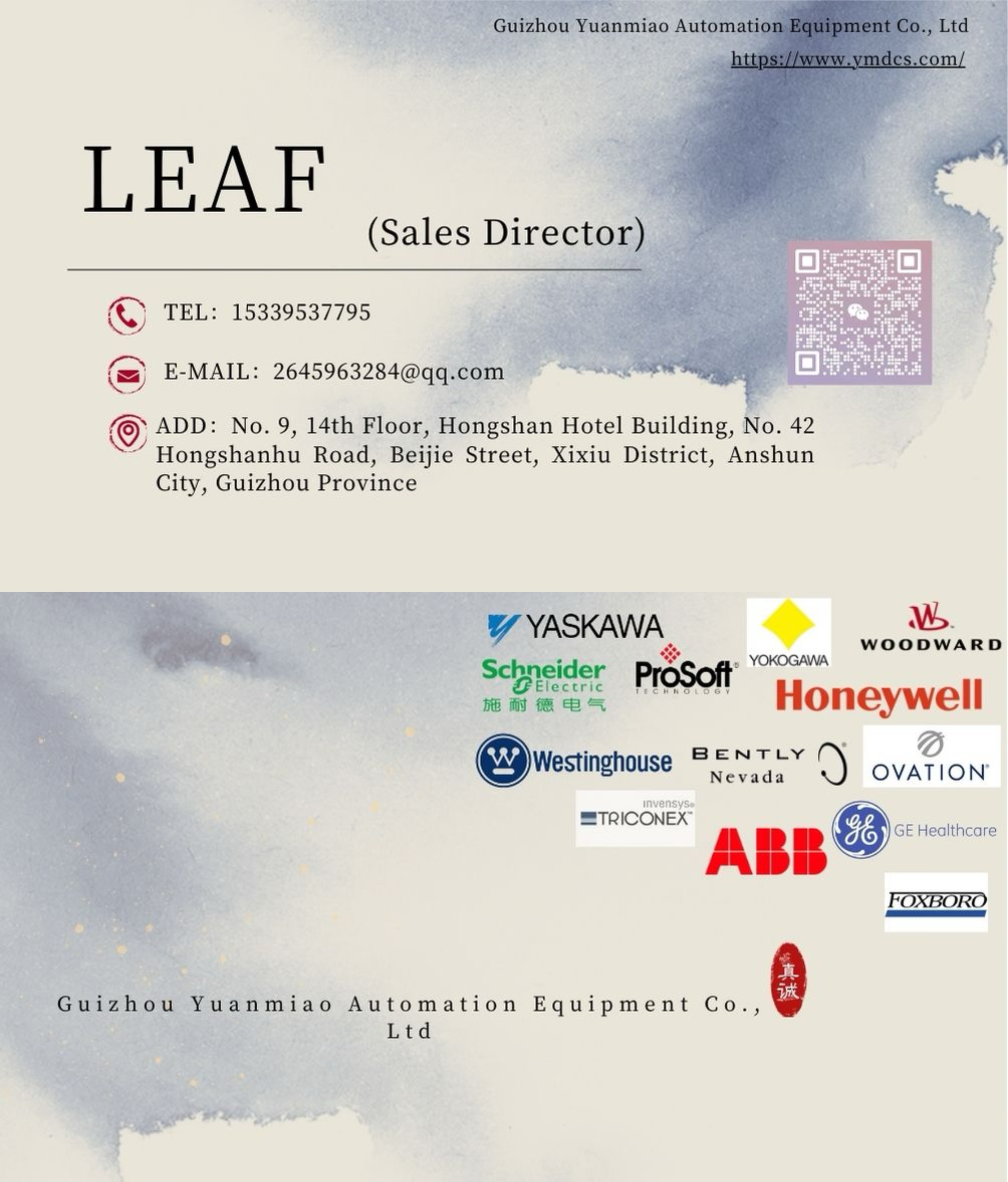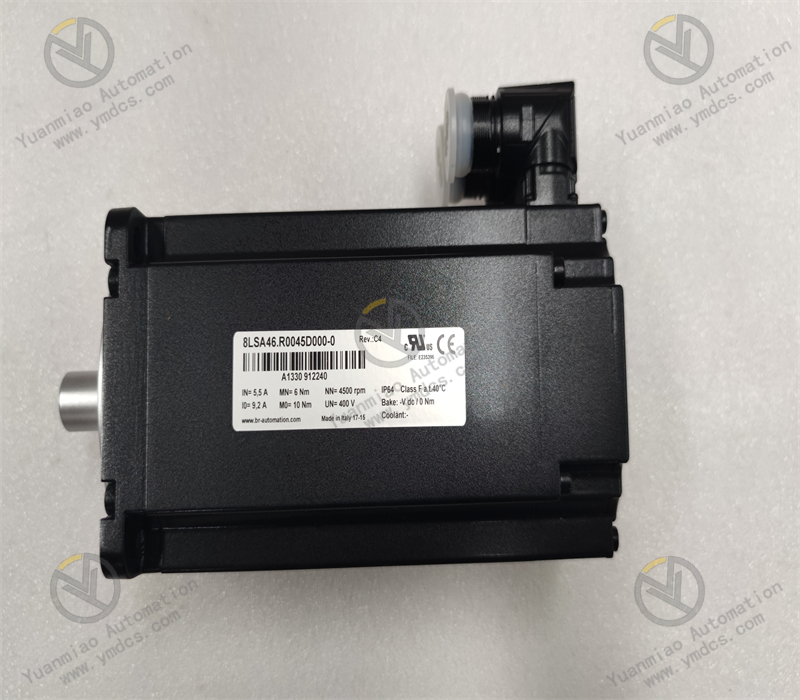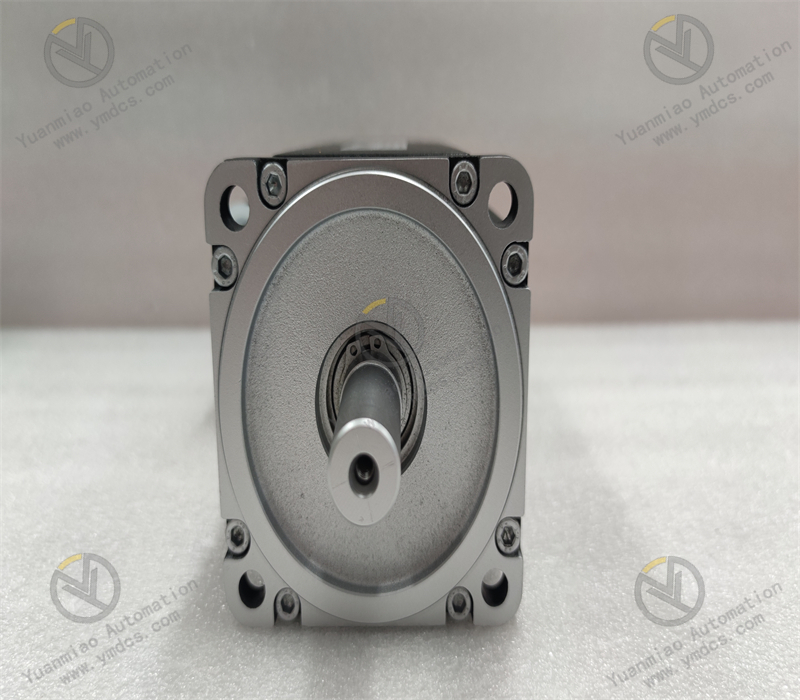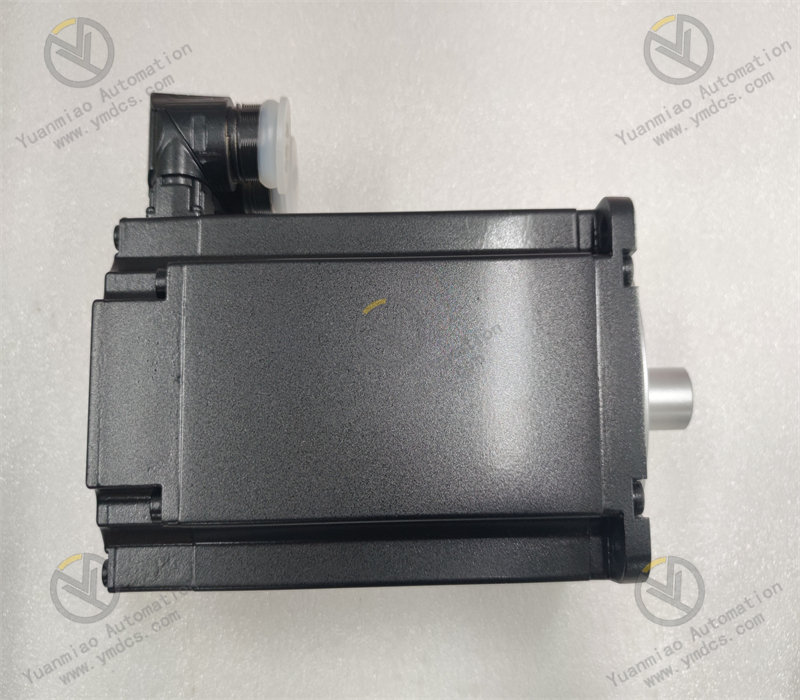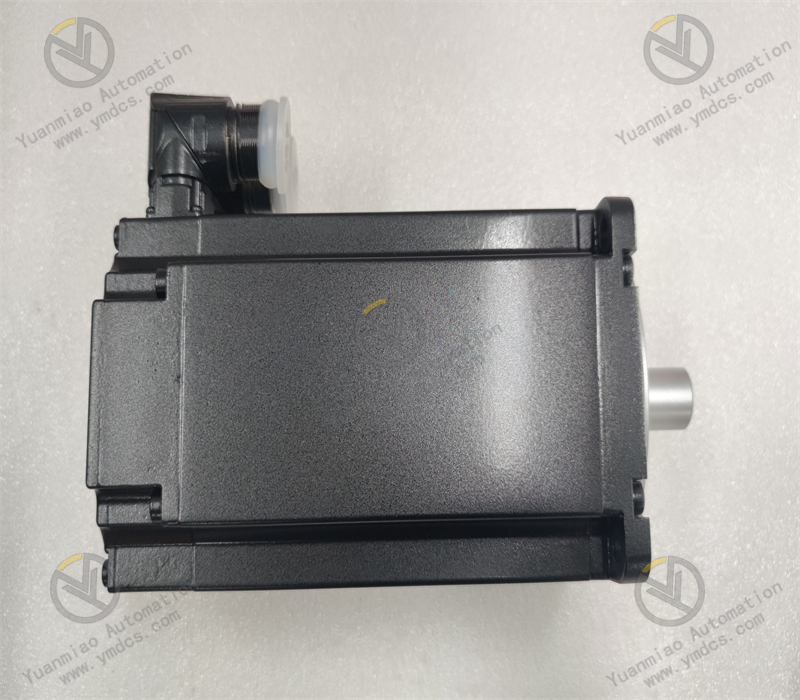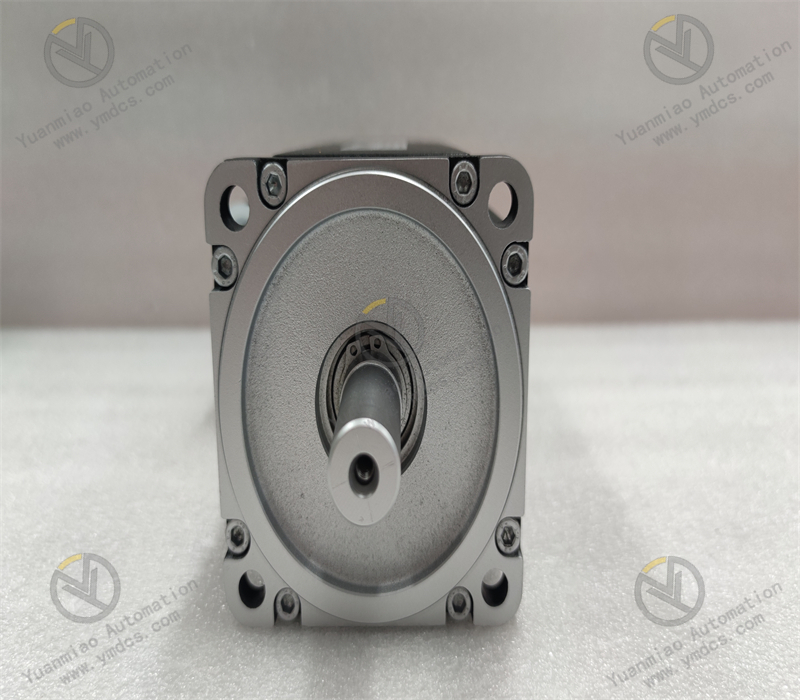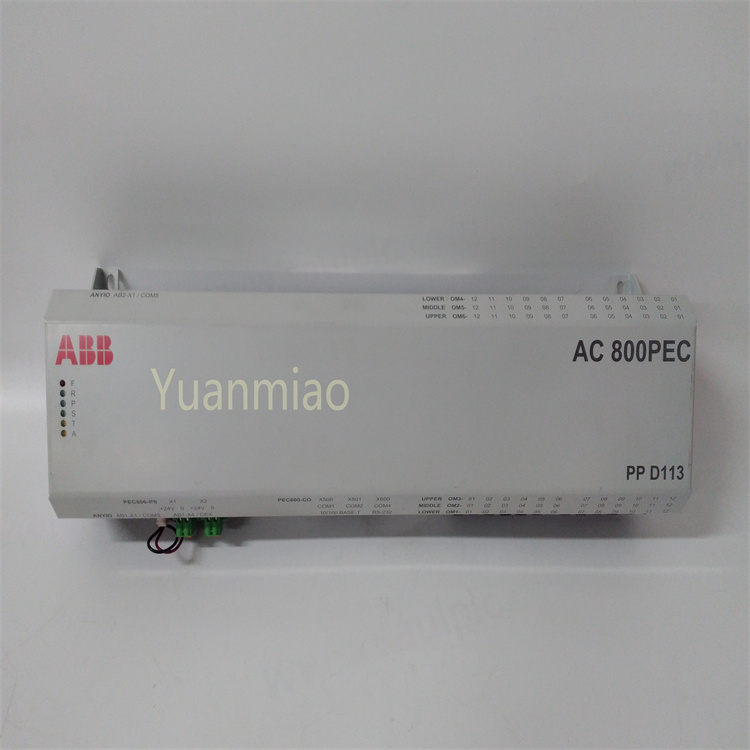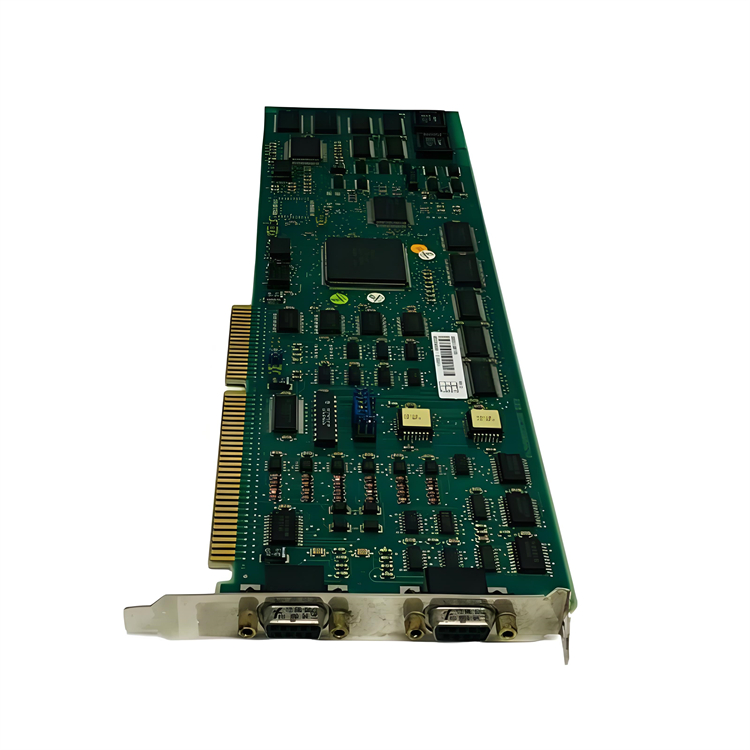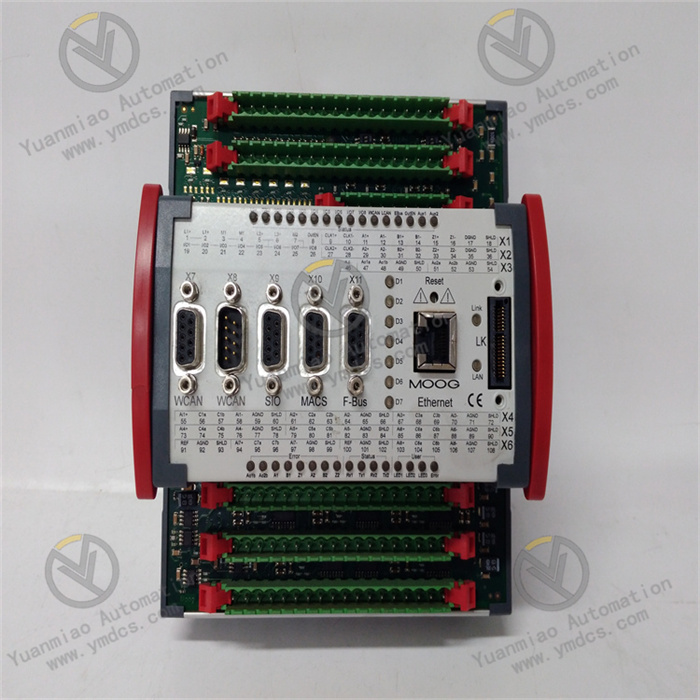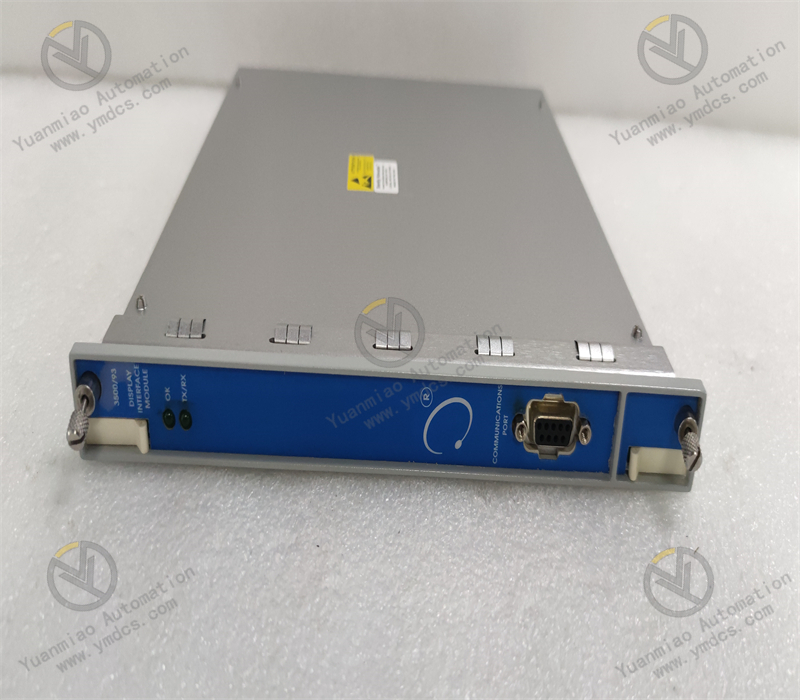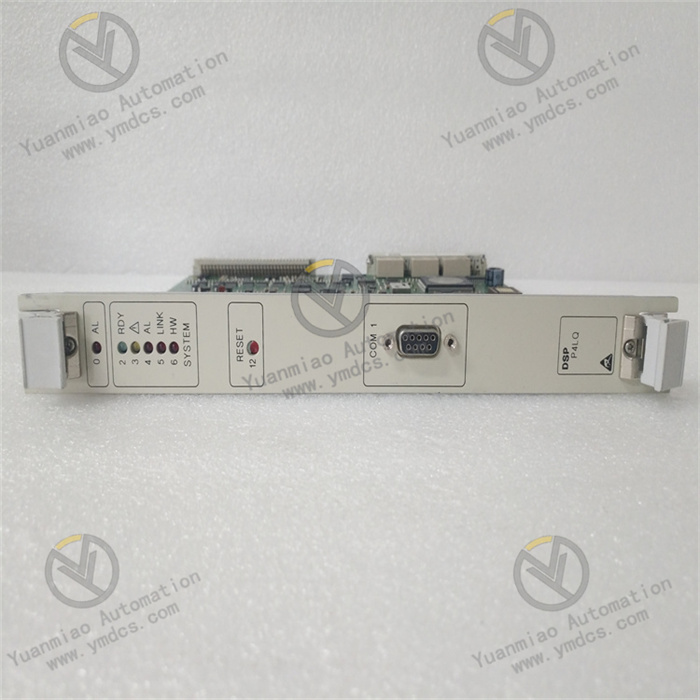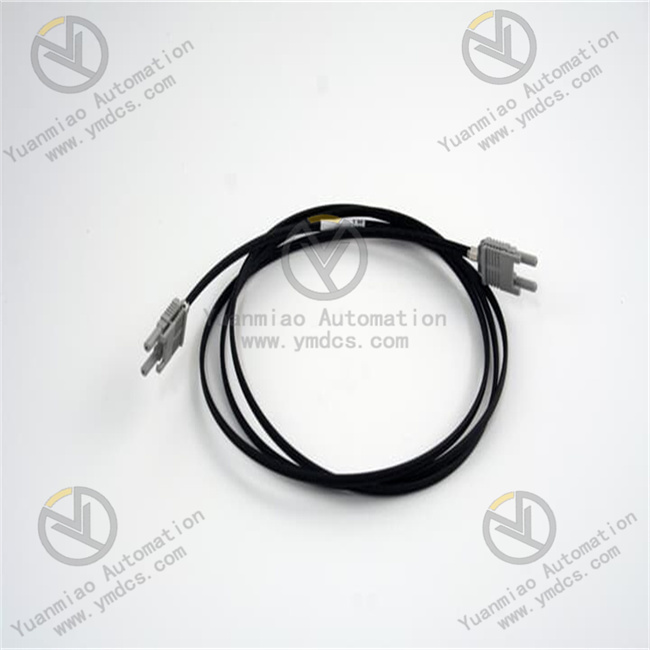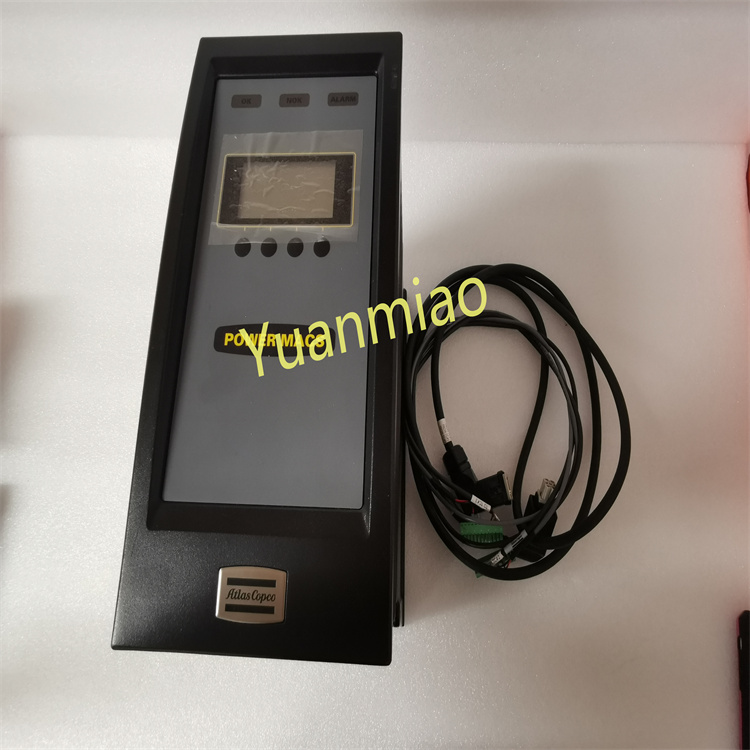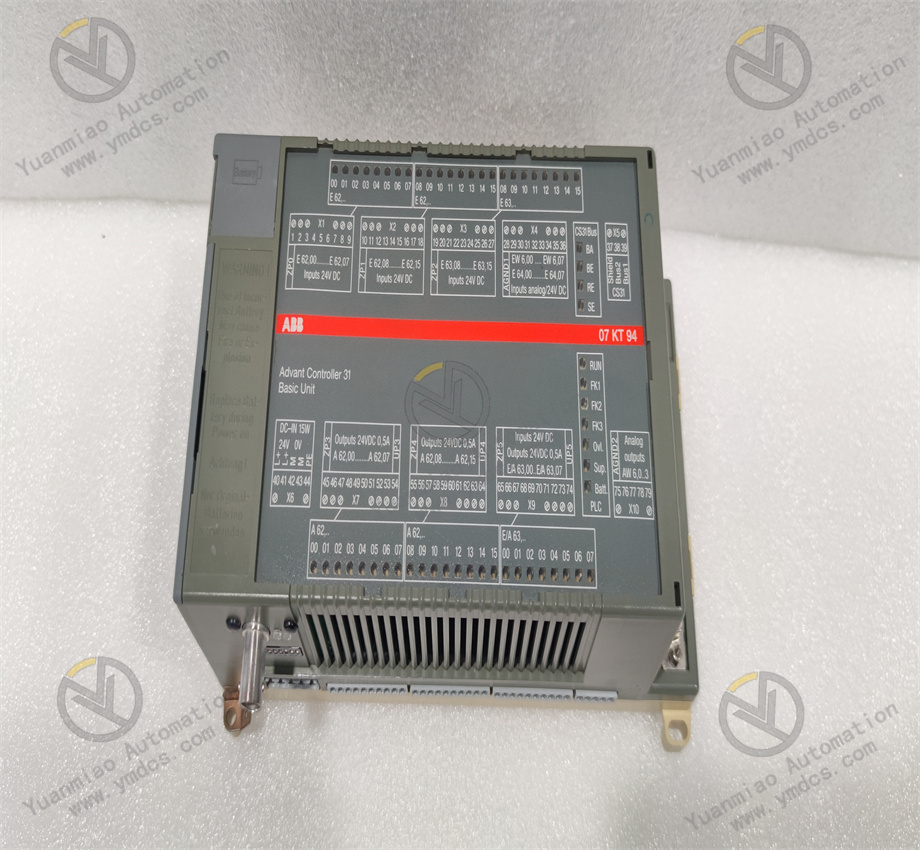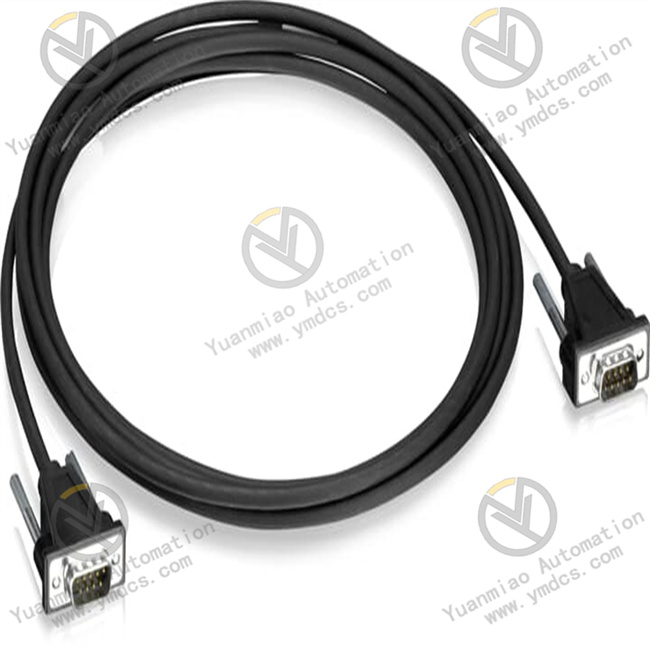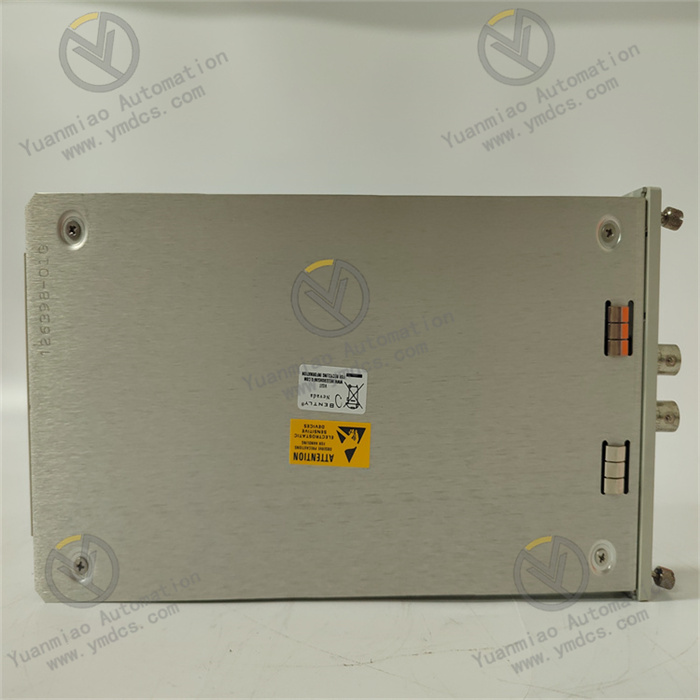Description
8LSA46.R0045D000-0 Disassembly and Meaning
8: Product Series Identifier
(B&R servo motors typically start with "8".)
LSA: Servo Motor Series
(Likely belonging to B&R's LSA series, focusing on high precision and high dynamic performance.)
46: Frame Size
(Represents the flange side length or power rating. For example, "46" may correspond to Frame 4, suitable for medium-sized equipment.)
R0045: Core Parameter Code
(May include power, speed, etc. Speculation:
- R: Related to rated speed (e.g., "R" denotes a certain speed specification);
- 0045: May correspond to a rated power of 4.5kW or a rated torque of 4.5N·m (to be determined based on the series characteristics).)
D000: Encoder or Interface Type
(e.g., "D" represents a certain encoder configuration, "000" is the standard configuration.)
-0: Version Number or Custom Option
(Default version.)
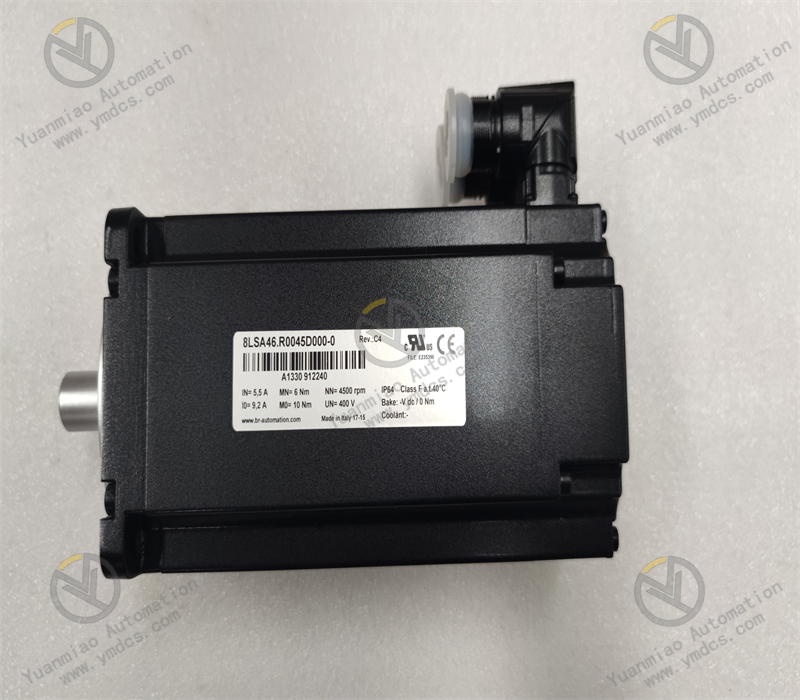
II. Technical Parameters
| Parameter Category | Speculation |
|---|---|
| Product Series | LSA series (high-precision industrial servo motors for complex motion control scenarios). |
| Frame Size | Frame 4 (flange side length approx. 60~90mm, suitable for medium machinery such as CNC machines and robot arms). |
| Rated Power | 4.5kW (speculated from "R0045"; typical power range for Frame 4 in the LSA series is 3~7kW). |
| Rated Torque | Approximately 14.3N·m (calculated by the power formula T=9550×nP, if rated speed is 3000rpm). |
| Rated Speed | 3000rpm or 6000rpm (the LSA series supports high speeds; subject to confirmation based on the specific model). |
| Encoder Type | Likely equipped with a high-precision magnetic encoder (e.g., resolution above 20 bits, supporting position and speed closed-loop control). |
| Protection Class | IP65 (dust-tight and water jet-proof, suitable for industrial environments with workshop dust and coolant spray). |
| Voltage Specification | Three-phase AC 380V (common voltage for medium-sized servo motors, compatible with industrial power supplies). |
| Communication Interface | Supports industrial buses such as Ethernet POWERLINK and CANopen (typical B&R configuration for easy system integration). |
| Protection Functions | Overload protection, overheat protection, encoder fault detection, overvoltage/undervoltage protection. |
| Application Scenarios | Precision machining tools, automated production lines, collaborative robots, packaging machinery (scenarios requiring high torque and dynamic response). |
III. Core Feature Analysis
1. High-Precision Control
- Equipped with advanced encoders, supporting micron-level positioning accuracy, suitable for scenarios requiring trajectory interpolation or synchronous motion (e.g., CNC milling, electronic component assembly).
- Optimized control algorithms enable low tracking errors (e.g., adjustable position loop gain to adapt to different load inertias).
2. High Dynamic Performance
- High Torque Density: Compact motor design with a high output torque-to-volume ratio, suitable for high-speed start-stop or frequent speed change applications (e.g., robot picking, labeling machines).
- Fast Response: High current loop bandwidth quickly tracks control signal changes, reducing motion lag.
3. High Reliability
- Efficient Heat Dissipation: Optimized housing structure with built-in fans or water cooling (optional), supporting long-term full-load operation (e.g., 24-hour continuous production).
- Industrial-Grade Protection: IP65 rating resists coolants, metal chips, and other contaminants, extending service life.
4. Flexible Integration
- Supports B&R automation systems (e.g., ACOPOS drives, Automation Studio programming software), enabling multi-axis synchronous control via buses.
- Compatible with third-party controllers (requires communication gateways), adapting to diverse system architectures.
IV. Operation and Maintenance Recommendations
1. Installation and Connection
- Mechanical Installation:
- Use a torque wrench to tighten mounting bolts according to specifications (refer to manual for torque values to avoid flange deformation).
- Ensure coaxiality between the motor shaft and load (error ≤0.05mm) to reduce mechanical stress.
- Electrical Connection:
- Select flame-retardant shielded cables for power supply (cross-sectional area matched to power; e.g., ≥2.5mm² for 4.5kW).
- Route encoder cables separately from power cables to avoid EMI (spacing ≥30cm).
- Ground terminals must connect directly to the control cabinet grounding bar to meet EMC standards.
2. Parameter Setting (with ACOPOS Drive)
- Motor Identification: Automatically read motor nameplate parameters (e.g., serial number, rated current) via drive software and load default configurations.
- Control Loop Adjustment:
- Speed Loop: Proportional gain (P) initial value 50~100, integral time (I) 0.01s, fine-tuned based on load inertia (reduce P and increase I for high inertia).
- Position Loop: Proportional gain (P) initial value 200~500, optimized with speed loop parameters to avoid overshoot.
- Protection Parameters:
- Current limit set to 150% of rated current (e.g., 15A for 10A rated current).
- Motor temperature threshold set to 80°C (triggers alarm and shutdown when exceeded).
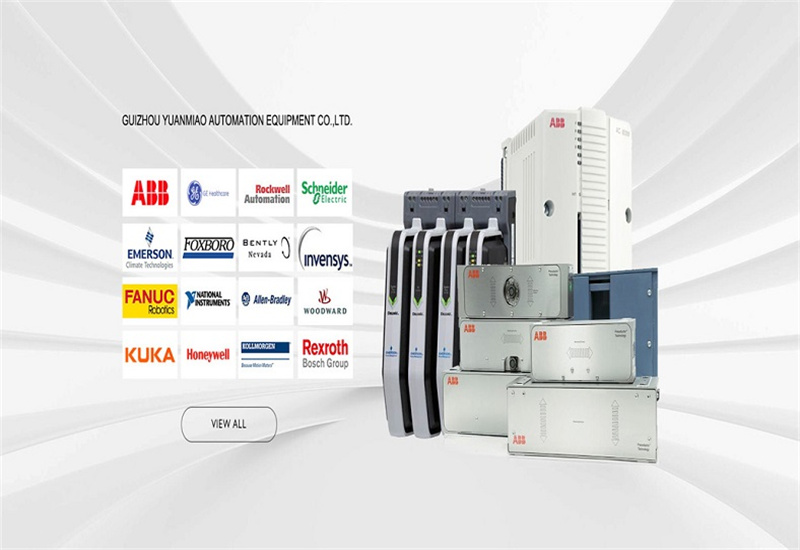
3. Debugging and Trial Operation
- Manual Testing:
- Send jog commands (e.g., 100rpm forward/reverse) to check rotation direction and running noise (slight electromagnetic sound is allowed, no abnormal vibration).
- Automatic Operation:
- Use Automation Studio to write ladder logic or ST language programs, test linear and circular interpolation functions, and monitor real-time torque and current curves (normal fluctuations ≤10% of rated value).
- Performance Optimization:
- If overshoot occurs during positioning, reduce position loop P or increase speed loop I; if response is slow, moderately increase speed loop P.
4. Daily Maintenance
- Cleaning: Quarterly cleaning of motor cooling vents with dry compressed air (air pressure ≤0.4MPa) to remove dust and debris.
- Cable Inspection: Monthly visual inspection of power and encoder cables for wear, cracks, or loose connections; replace aging cables promptly.
- Bearing Lubrication: For oil-lubricated bearings, replenish lithium-based grease every 20,000 operating hours (refer to manual for lubrication points).
- Accuracy Calibration: Annual calibration of encoder zero point and resolution using a laser interferometer to ensure long-term positioning accuracy (error ≤±0.005mm).
V. Precautions
- Heat Dissipation Requirements: Avoid use in enclosed environments without forced ventilation. Control ambient temperature at -10°C~40°C (non-operating)/0°C~60°C (operating).
- ESD Protection: Wear anti-static wristbands when handling encoders or electrical interfaces to prevent electrostatic damage to electronic components.
- Safety Protocols: Never touch rotating parts during operation. Disconnect power and wait for capacitor discharge (at least 5 minutes) before maintenance.
